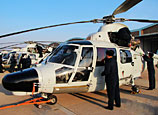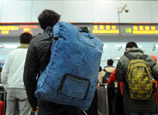
Key Words: U.S.; Sino-U.S.; Barack Obama; Diaoyu island;fiscal cliff;
Related Reading:
>> Will Obama 2.0 get tougher with China?
>> Obama signs defense authorization act
>> Obama nominates U.S. defense, CIA chiefs
Selling more arms to Taiwan and committing to Japan on Diaoyu Islands will eventually harm its own interests
President Barack Obama early this year signed into law the United States' National Defense Authorization Act for Fiscal Year 2013, which the Senate and House of Representatives passed in December. The act includes two sections that involve China's core interests, namely one asking the US president to "take steps to address Taiwan's shortfall in fighter aircraft through the sale of F-16 C/D aircraft" and the one stating that "the US reaffirms its commitment" to the US-Japan Treaty of Mutual Cooperation and Security with regards to the Diaoyu Islands dispute.This is an alarming move. The US legislators think they are safeguarding the US' national interests but they are actually harming them.
Since 2008, the relationship between the Chinese mainland and Taiwan has witnessed peaceful development, and the current state of dtente and stability is unprecedented. The cross-Straits economic ties have never been so close; mutual visits by ordinary people never so frequent; and the bilateral political and security relationship never so stable. Such constructive interactions are not only in the interests of the people on both sides of the Straits, they also add to peace, stability and prosperity in the region.
A constructive cross-Straits relationship is also in the interests of the US. It can reduce, and even prevent, the risk of a "Taiwan independence"-induced crisis, which would lead to tension in the Sino-US relationship and even a military conflict.
Whether the two sides across the Straits can maintain a peaceful relationship depends on the recognition of one China. The US' sales of high-tech arms to Taiwan will never bring about a balance of military power across the Straits. Instead, it will cause tensions in the region and lead to major retrogression in the Sino-US relationship. It is shortsighted and dangerous to jeopardize the US' long-term strategic interests to meet the private interests of a few US politicians and certain interest groups, including arms manufacturers.
The Diaoyu Islands and their affiliated islets have been China's inherent territory since ancient times. Diplomatic frictions between China and Japan over the islands are longstanding. However, the recent move taken by the Japanese government to "nationalize" the Diaoyu Islands is a clear violation of China's sovereignty over the islands and has caused the bilateral relationship to plunge to its lowest point since the two countries normalized diplomatic ties 40 years ago.
Constant tension in the Sino-Japanese relationship is harmful to Northeast Asia's security, stability, peace and prosperity, and will adversely impact the recovery of the global economy. All nations and politicians should play a positive role in seeking to improve Sino-Japanese relations. The US often lectures other nations, asking them to be responsible. However, it says one thing and does another, and it has been adding fuel to the flames in the dispute between China and Japan.

















 Extinction of river dolphin: What does it mean for the Yangtze River?
Extinction of river dolphin: What does it mean for the Yangtze River?


![]()
